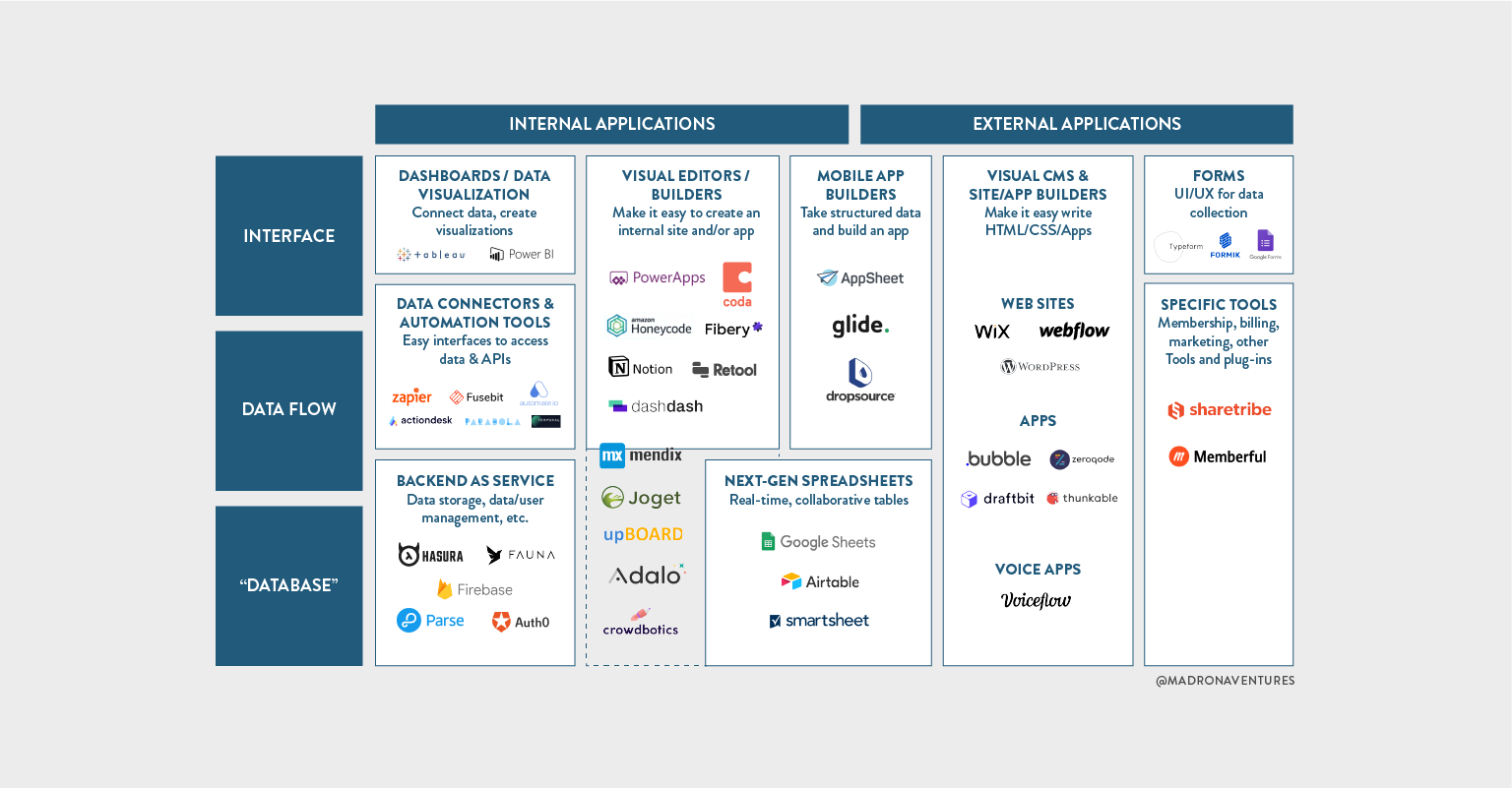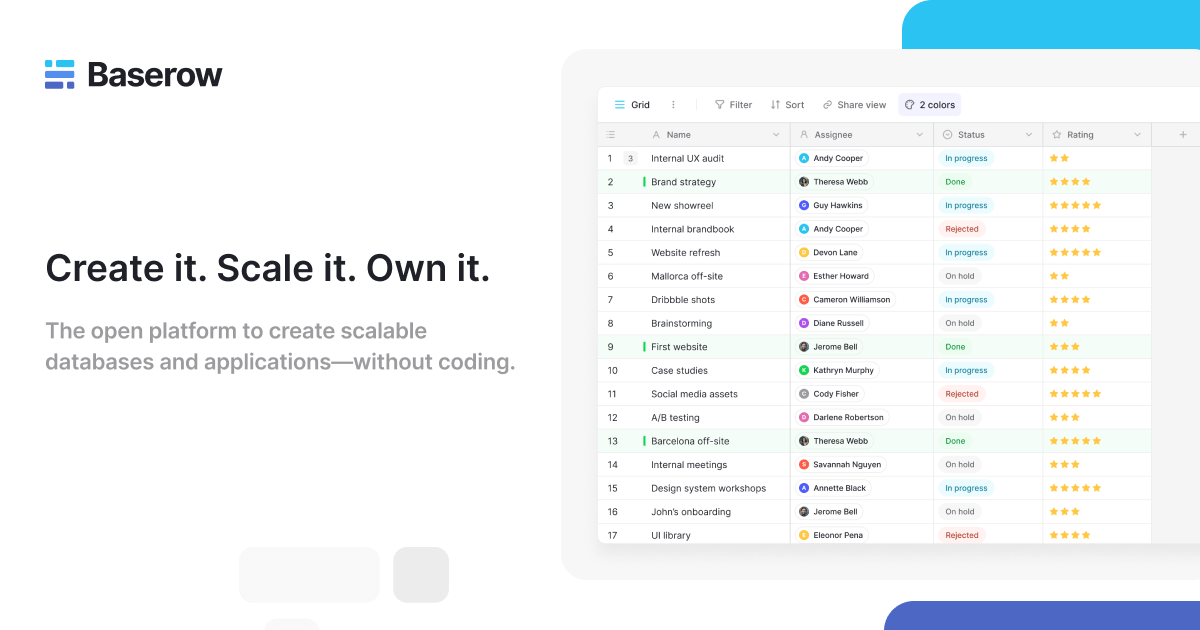Checking Out the Benefits of Scalable Databases That Call For No Coding Abilities for Effective Information Administration Solutions
The introduction of scalable databases that get rid of the necessity for coding abilities presents a transformative possibility for organizations looking for efficient information management remedies. By enabling non-technical customers to harness the power of data via intuitive user interfaces, these systems boost availability and foster collaboration across varied teams. In addition, their cost-effectiveness and versatility to advancing company demands can considerably simplify operational procedures. As we take into consideration the implications of such innovations, it ends up being crucial to take a look at just how they can reshape the landscape of information monitoring and drive sustainable growth in an affordable atmosphere.
Enhanced Availability for Users
Boosted ease of access for individuals is a vital element of scalable data sources, making certain that data administration systems are user-friendly and user-friendly. In an age where data-driven decisions are vital, availability permits a bigger variety of individuals, consisting of those without considerable technological competence, to engage with data source systems effectively. This democratization of data access assists in improved collaboration throughout divisions, encouraging staff members to draw out understandings and make informed decisions.
User-friendly interfaces, such as visual data and drag-and-drop functions depiction, simplify complex information interactions. These improvements lower the understanding contour linked with standard database management, making it possible for individuals to concentrate on leveraging information instead than coming to grips with technical intricacies. Furthermore, scalable databases frequently incorporate real-time analytics and adjustable control panels, providing individuals with immediate insights customized to their details demands.

Cost-Effectiveness and Source Cost Savings
Effective data management not just hinges on accessibility yet likewise on cost-effectiveness and resource savings. Scalable data sources created for users without coding skills significantly lower monetary burdens commonly connected with conventional database management systems. By removing the demand for specialized programs knowledge, companies can assign their resources more successfully, focusing funds on core organization activities as opposed to comprehensive training or working with proficient personnel.
Additionally, these data sources frequently use cloud-based solutions, which even more minimize prices associated to equipment and upkeep. Organizations can scale their database services according to their demands, staying clear of the costs sustained from over-provisioning sources. This adaptability means services can adapt to transforming demands without incurring unnecessary prices, resulting in considerable lasting savings.
Furthermore, straightforward interfaces improve data access and monitoring procedures, reducing the time invested in management jobs. This efficiency translates into labor expense financial savings, permitting groups to concentrate on strategic initiatives as opposed to routine maintenance. In general, taking on scalable data sources that need no coding abilities fosters a more cost-efficient method to data administration, making it possible for companies to optimize their sources while keeping high degrees of functional effectiveness.
Improved Partnership Across Teams

Furthermore, scalable data sources facilitate seamless interaction among employee. With easy to use user interfaces that need no coding skills, staff members can easily create, customize, and share records or control panels customized to their details needs. This democratization of data empowers non-technical users to contribute insights, improving the collective atmosphere.
Furthermore, these data sources sustain concurrent gain access to, enabling several individuals to deal with the exact same dataset all at once. This attribute boosts performance, as groups can involve in joint information analysis without the danger of version control issues. The ability to leave notes or remarks straight within the data source additionally advertises dialogue and clarifies data analyses.
Streamlined Information Administration Processes
In today's data-driven atmosphere, organizations recognize the necessity of structured information administration refines to make the most of efficiency and precision. By leveraging scalable data sources that need no coding skills, businesses can streamline their information handling and minimize the complexities usually related to conventional database systems. This access encourages non-technical individuals to engage straight with information, assisting in quicker decision-making and minimizing reliance on specialized IT personnel.
Streamlined information administration procedures improve workflow by automating regular jobs such as data entry, recognition, and reporting. Automated data integration ensures that details he said from different sources is accumulated flawlessly, getting rid of silos and fostering a linked sight of crucial business metrics (no-code). Moreover, user-friendly user interfaces enable personnel to adjust data conveniently, allowing them to produce understandings that drive calculated initiatives without the requirement for extensive training.
This efficiency not only increases functional processes however additionally reduces the capacity for human error, guaranteeing that information stays exact and reputable. Inevitably, structured data administration procedures through scalable data sources bring about enhanced efficiency, permitting companies to concentrate on core activities while guaranteeing that their information administration techniques are efficient and effective.
Scalability for Expanding Services

For increasing ventures, the capability to scale up or down is important. A scalable database can handle an increase of information produced from new consumers, items, or services, ensuring that organization procedures stay nonstop. These databases give the ability to manage peak tons efficiently, which is important throughout periods of quick growth or seasonal spikes.
In addition, lots of scalable database options are designed with straightforward interfaces that call for no coding skills, encouraging non-technical staff to handle data successfully (no-code). This democratization of information administration permits organizations to designate resources tactically and lower reliance on specialized IT employees
Ultimately, embracing a scalable data source not only improves functional efficiency however additionally fosters an atmosphere where businesses can evolve and innovate without the restraints of traditional database systems. This versatility placements organizations for long-term success in today's affordable landscape.
Verdict
In final thought, scalable data sources that call for no coding abilities supply substantial benefits for effective information administration. By enhancing information monitoring procedures and using scalability for expanding services, such services make it possible for companies to adjust to changing demands effectively.
Enhanced accessibility for users is an important element of scalable databases, guaranteeing that data management systems are user-friendly and intuitive.Straightforward user interfaces, such as drag-and-drop functions and visual data depiction, simplify complex information interactions. On the whole, embracing scalable databases that call for no coding skills fosters an extra economical method to data monitoring, allowing organizations to optimize their resources while keeping high degrees of operational effectiveness.
By leveraging scalable databases that call for read this article no coding skills, businesses can simplify their information handling and minimize the intricacies normally associated with typical database systems - no-code.Structured data administration processes boost process by automating routine tasks such as information entry, recognition, and coverage